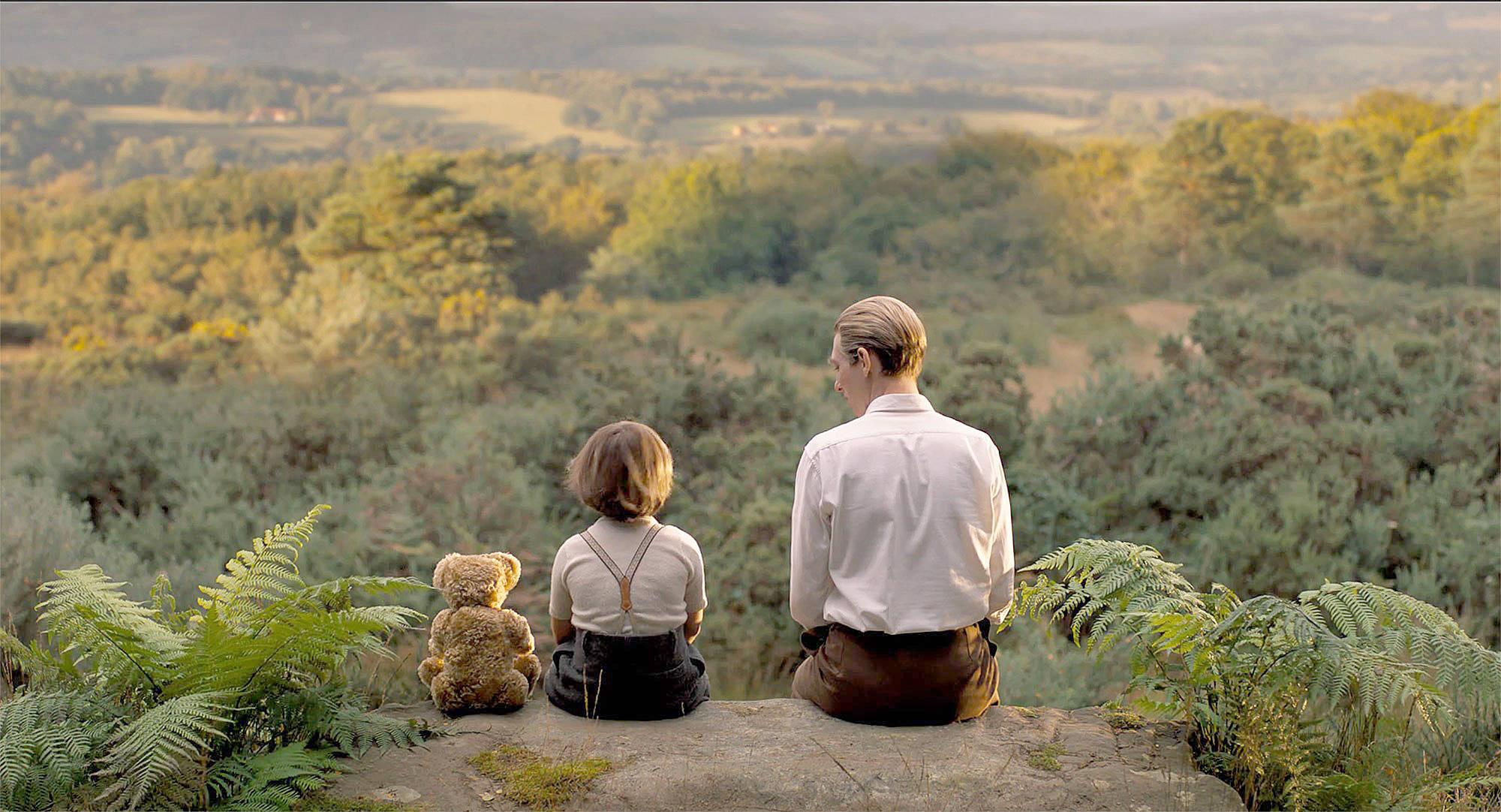Over the years the rights to Winnie-the-Pooh have been acquired by Disney, so the muscle of the world’s savviest media corporation stands behind the winsome cartoon bear. If that doesn’t already seem like a mismatch, it will after you see Goodbye Christopher Robin, a British film about the origins of Pooh. This gentle movie examines what happens when a cartoon character becomes a media phenomenon.
We begin with author A.A. Milne, played by Domhnall Gleeson (the ubiquitous star of Ex Machina and The Revenant). Recovering from shellshock after World War I, and retreating with his puzzled, impatient wife Daphne (Margot Robbie) to a country estate, Milne searches for a subject to write about. He really wants to write a book about world peace, but in rare playdates with his son Billy (Will Tilston), Milne and the boy invent a whimsical world. They’re inspired by Billy’s stuffed animals: a bear, a donkey, a piglet, a tigger—I mean, tiger.
Milne writes a story to go along with these characters. He uses his son’s birth name, Christopher Robin, for the name of the child in the stories, a decision that will cause unexpected headaches when the Winnie-the-Pooh tales become wildly popular overnight. Everybody wants to know who the “real” Christopher Robin is, and the film becomes a case study in celebrity—and the negative effects that follow when something simple becomes too loved. Goodbye Christopher Robin is not a feel-good tale, although director Simon Curtis lays on the reassuring British period trappings. There are scenes that draw blood, like the moment young Billy wonders why his father—traveling to promote the books—can’t call him without putting the conversation out on live radio.
Gleeson nicely balances aloofness and tender-heartedness, although Robbie (rather a world away from her Suicide Squad persona here) has a more shrewish part to play. Grounding the movie is Kelly Macdonald, whose nanny sees the damage being done to the Milne family, but can’t speak up about it. Two writers, Frank Cottrell Boyce and Simon Vaughn, maintain the serious approach to this tale of innocence lost. They’re keen on showing how the Winnie-the-Pooh craze predicted the rise of media madness in the century to come, but they also get in digs at the British class system and stiff-upper-lip decorum.
In its admirably modest way, this is a thoughtful film—more Pooh than Disney in its style, and a useful reminder of a bear’s humble origins. Now playing at Seattle 10, Meridian, Lincoln Square, Alderwood; Rated PG
film@seattleweekly.com






